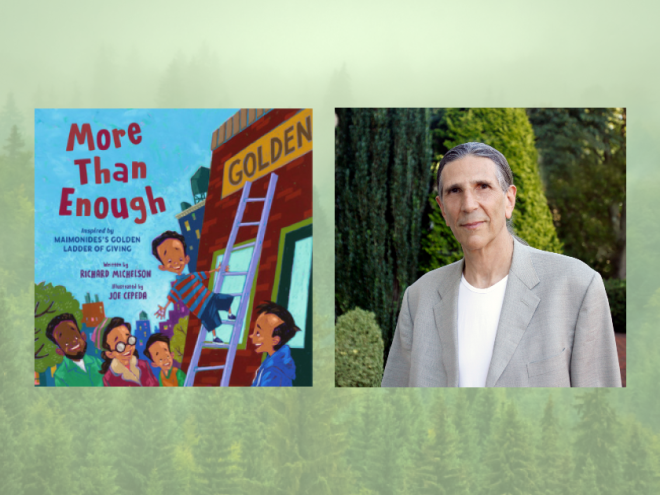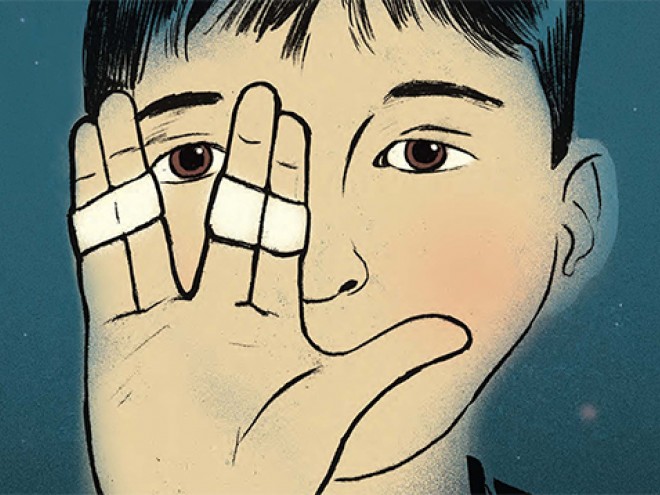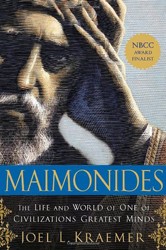The laws of giving tzedakah are an essential part of Jewish education. In More Than Enough, Richard Michelson and Joe Cepeda condense the core part of Maimonides’s famous ladder of giving, in which the great philosopher enumerated, from the least to the most effective, an ethical path to helping those in need. Repeating variations on the refrains “little enough is more than enough,” and “feels better to help than to need help,” the book encourages an important mitzvah.
The setting is a multicultural neighborhood where economic insecurity is common. No one in the story is affluent, including Moses, a boy who is on a shoe-shopping errand with his mother. When Barefoot Benny shakes his cup, asking for spare change, Moses is embarrassed and looks away. Michelson acknowledges the discomfort that children and adults, may feel when confronted with the painful reality of poverty. Moses’s mother does not judge his feelings, but instead explains that ignoring someone reduced to begging is not an option, even if Moses’s own choice of new high tops may now be limited.
Encounters with more neighbors for whom times are tough are complemented by evidence that even a small gesture can bring change. Benny, no longer barefoot, now has a job as a barber, where he extends the same helping hand to Big Jim, who also finds employment. Assistance can take other forms than outright gifts of money, as Maimonides made clear. When Ms. Brown needs childcare in order to attend an interview, Moses insists that playing with her child, PJ, “is more than enough for us,” sparing Ms. Brown from shame and enabling her to become self-supporting. These are both characteristics of dignified giving.
While including a diverse range of characters has become typical of many Jewish-themed children’s books, Michelson and Cepeda have chosen to both acknowledge this norm and to vary their approach. Many of Moses’s neighbors, as well as members of his own family, present as people of color, and some are also Jewish. On Rosh Hashanah, Moses’s mother warmly welcomes her son’s best friend, Noah, whose father’s recent loss of a job means their family can barely pay their rent. There will be more than enough apples and honey for everyone to share.
On Christmas, Moses and his family volunteer at a community kitchen, ensuring that financial difficulties will not be an obstacle to anyone celebrating their holiday. The matter-of-fact speech patterns of Michelson’s characters could be rooted in different cultures, but their words all add up to generosity. Moses’s father, Pops, gently reminds the Christmas guests that, even though their meal is plentiful, caring needs to be an ongoing process: “Too many folks are living out on the street. They need jobs to help make ends meet.” Maimonides would definitely agree.
Emily Schneider writes about literature, feminism, and culture for Tablet, The Forward, The Horn Book, and other publications, and writes about children’s books on her blog. She has a Ph.D. in Romance Languages and Literatures.





